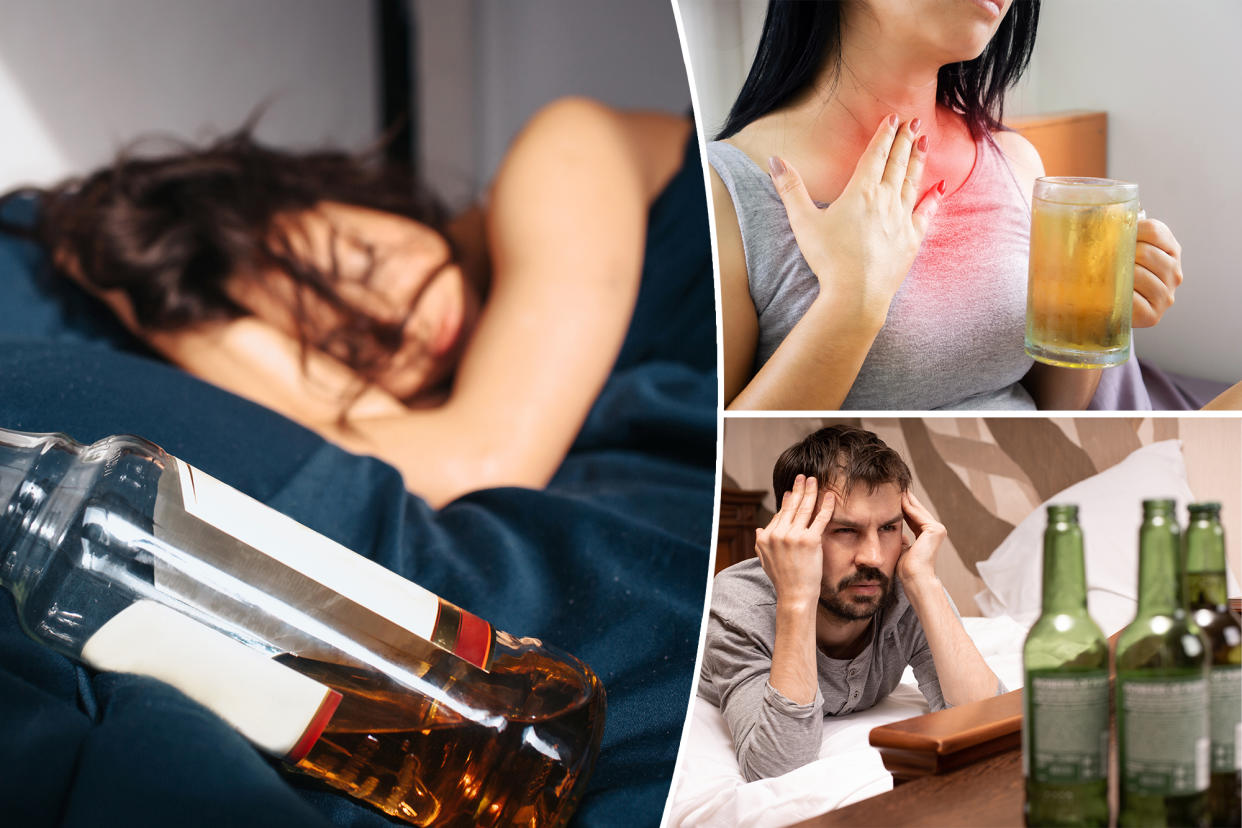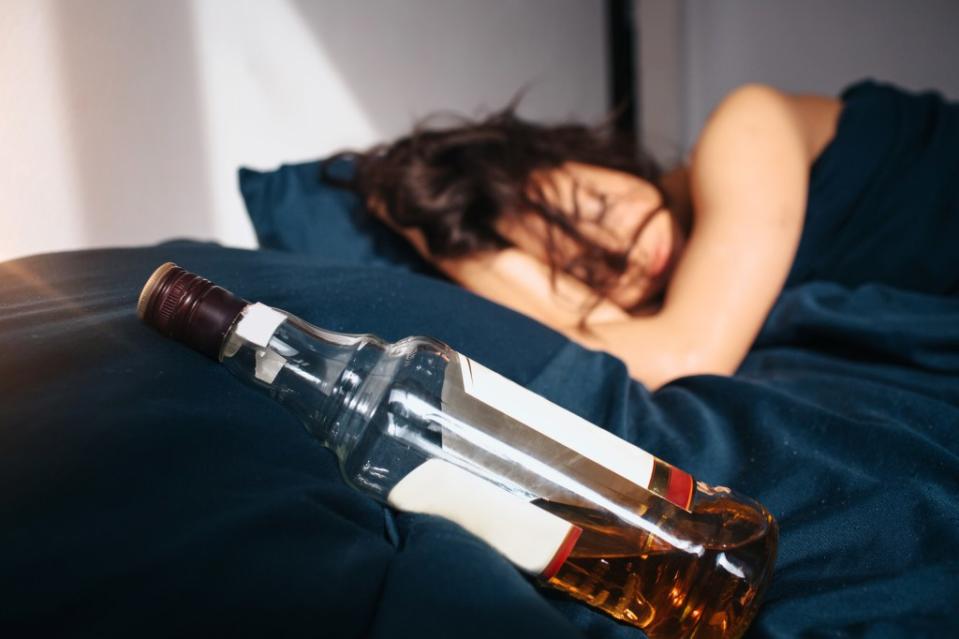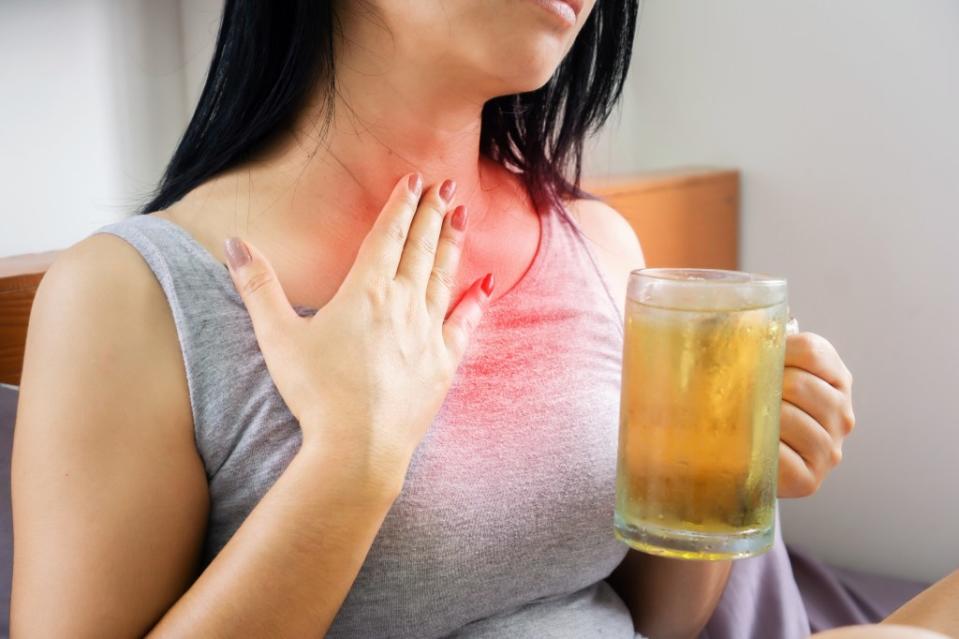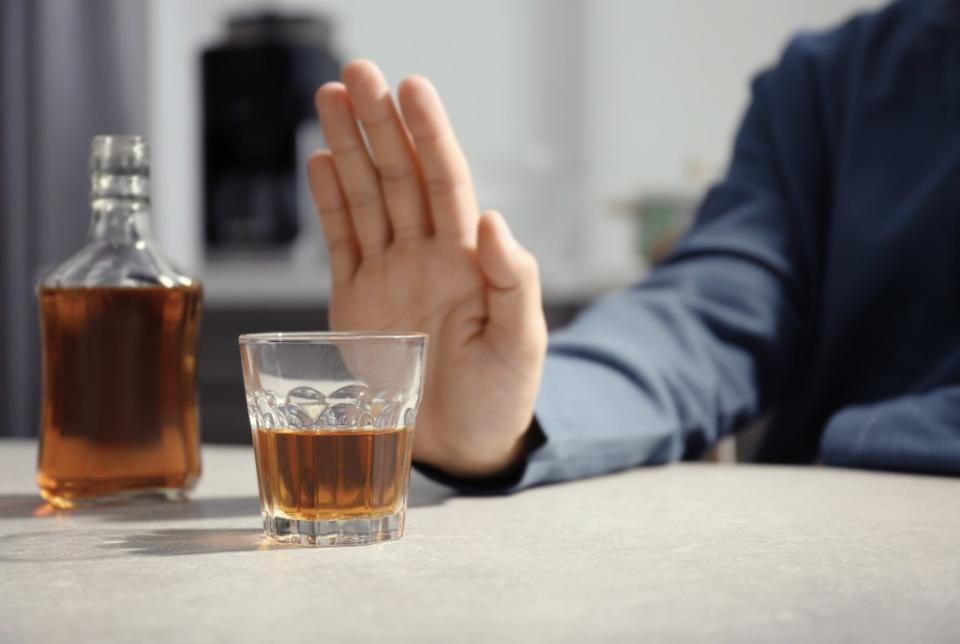Think you’ve just got a hangover? These symptoms after drinking alcohol mean you may have something worse

A pounding headache and stomach-churning nausea are hallmark signs you had a few too many — but experts say it could mean something more dangerous to your health.
While a post-holiday hangover is to be expected after downing copious cocktails or brews, health professionals say you should be concerned if the symptoms come on after only one or two drinks.
It could be a sign of alcohol intolerance, they say.
“In reality, an alcohol intolerance is different from an alcohol allergy,” allergist-immunologist Dr. Jeffrey Factor told HuffPost, noting that the issue arises in his own patients “a fair amount.”
“Alcohol intolerances are much more common than a true alcohol allergy,” he declared.


Symptoms of an alcohol intolerance include flushing and redness, hives, worsening of asthma, a stuffy nose, nausea, vomiting and low blood pressure.
According to Mayo Clinic, an intolerance to alcohol, which is typically genetic, occurs because the body is unable to efficiently break down the toxins that are present in alcohol. However, other chemicals, ingredients, sulfites, preservatives and histamine, which is a result of brewing or fermenting alcohol, can also trigger a reaction.
“This is even further complicated when you talk about cocktails, which can be mixed with anything,” Trevor Craig, a corporate director of technical consulting for Microbac Laboratories, told HuffPost.
It is different from a true allergy, in which the immune system triggers a response to the alcoholic beverage. An intolerance, per Factor, does not involve the immune system, although the symptoms are very similar to that of an allergy.
“So, you can’t look at a particular reaction and say, ‘Oh that’s definitely an allergy versus an intolerance to alcohol,’” said Factor, who is also a fellow of the American Academy of Allergy, Asthma and Immunology.

Unfortunately, there is no tried and true way to test for an alcohol allergy. Unlike other allergies, pricking the skin with the suspected allergen — in this case, alcohol — will not yield accurate results.
There are other tests available, like a blood test, but a doctor may test patients for an allergy to the common ingredients in alcoholic drinks, such as yeast, barley, dairy and more, which can crop up at any age.
According to Factor, patients commonly come in describing sudden intolerance or allergy-like symptoms related to alcohol consumption.
If you’re allergic to the ingredients within alcoholic beverages, it may be wise to skip the drinks all together, as experts claim that the Food and Drug Administration does not require allergens to be listed on alcohol bottles, unlike other foods and drinks.
Not to mention, “you might be ordering from a bar and not even have access to the bottle,” noted Craig.
“If you don’t know what’s in your drink and your allergy is serious, then skip it,” he advised.

Unfortunately, the guaranteed tactic to avoiding a reaction is to stop drinking booze — or at least the ones you notice are aggravating your symptoms.
“The bottom line is this: There’s no treatment, no testing of any significant value, and the solution is really just to avoid that alcohol, or alcohol in general,” Factor explained. “It’s not a very pleasing solution for a lot of people, but that’s what it is.”

